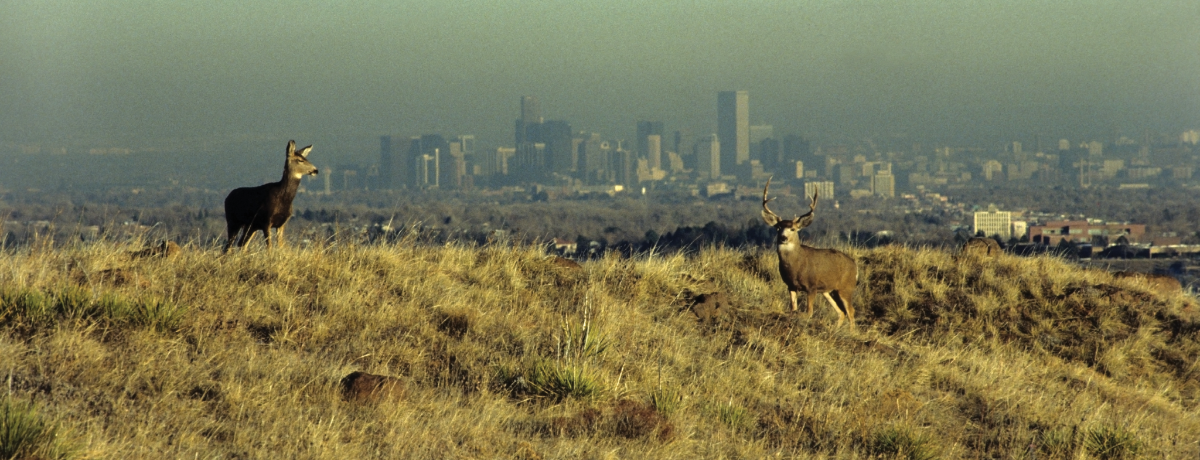In the United States, the new White House administration is expected to usher in new policy in the effort to fight climate change. But what is happening on the state level?
In Colorado, for example, the University of Colorado Boulder has pointed out how the Western United States has seen increased average temperatures in recent years. These rising temperatures tend to make existing problems, such as snowpack, water scarcity, drought, pine beetle infestation, etc., worse.
With these known issues in Colorado as our setting, we wanted to get a better understanding of what is happening on the legal front as it relates to climate change policy. We spoke to a few Best Lawyers-recognized attorneys to discuss environmental legislation in Colorado to get a better sense of what future legislation might look like.
Peggy E. Montaño
Trout Raley Montaño Freeman Sinor Thompson, P.C.
Recognized for Environmental Law & Water Law
Denver, CO
What is your opinion of the current state of environmental affairs in Colorado?
Colorado has outstanding leadership on environmental issues at the state level and is poised well to address future challenges. From the Governor’s office which has a focus on climate impacts to the natural resources leadership, including expertise on water, natural lands and wildlife the team is outstanding. I am confident that challenges will be met with a rigorous approach for the benefit of the people of Colorado.
Eric Waeckerlin
Brownstein Hyatt Farber Schreck
Recognized for Environmental Law
Denver, CO
What is your opinion of the current state of environmental affairs in Colorado?
There is no doubt Colorado continues to play a leading role in environmental and energy policy. It is exciting to work with my clients in navigating this quickly changing landscape and to look for new and innovate ways to meet our energy needs in a sustainable way.
Has there been new environmental laws passed recently to help the environment of Colorado or climate change?
Colorado has been working on climate change and environmental issues for a very long time. The legislative session in 2019 was an important marker in these efforts, as we saw several new and significant bills, among them SB 181, that changed the way in which the executive agencies are tackling environmental and climate change issues in the state. The regulatory execution of these legislative initiatives is just beginning to roll out and I expect significant movement in the next several years on a number of environmental and climate change issues. For example, CDPHE has issued its Greenhouse Gas roadmap and we are expecting a significant rulemaking on that in the Fall 2021.
How has new energy and/or environmental laws impacted Colorado?
What I’ve seen develop more than anything is broader stakeholder participation, including from public citizens that have become invested in these issues from a community-impact perspective. Of course, regulation of the business community is omnipresent and much of our work as lawyers involves navigating the regulatory framework, but I have seen this branch out into issues like environmental justice, climate adaptation, and community impacts related to oil and gas, transportation, electricity generation, among others.
Are there more laws being passed in the future to help with climate change?
I think you can expect the incoming federal administration to do a number of things around climate change. The most interesting question to me will be whether the new Congress can pass a meaningful, omnibus climate bill, which they have not been able to do for years. In the wake of federal legislative inaction on climate change, we have seen the states pick up the mantle on climate change legislation and regulation. Given the global nature of greenhouse gas emissions and impact, many people think these state-led efforts are not enough and the problem needs to be addressed at the national and international stage. It will be fascinating to see how this push and pull develops over the next two years.
How has Colorado fared in bettering the environment, through laws or any other ways, compared to other states?
Take oil and gas for example. Colorado has by far the most stringent regulatory framework governing oil and gas operations (COGCC) and environmental impact (CDPHE) of anywhere in the world. I don’t think at this point it is even debatable that Colorado produces the cleanest energy in the country. This is not just by coincidence as the state, the companies, and many other stakeholders have worked tirelessly over the last 15+ years to put in place this regulatory framework. While there is more to come and more important work to be done, I think it’s important to take stock of all the achievements Colorado has made.
Peter J. Kirsch
Kaplan Kirsch & Rockwell
Recognized for Environmental Litigation
Denver, CO
What is your opinion of the current state of environmental affairs in Colorado?
In the last few years, Colorado has gone from a relatively passive role to being a national leader on climate legislation and regulation – from new statutes and regulations on electric vehicles, oil and gas regulation, methane regulation, to greenhouse gases and local resiliency planning, Colorado is increasingly positioning itself as being on the forefront of progressive climate-oriented legislation and regulation. This state-level shift complements the shift in the Colorado congressional delegation to a far more climate-sensitive group. Along with other western states such as New Mexico, Nevada, California, Washington, and Oregon, and even Arizona on some issues, the Colorado state house and Governor have decided that climate-related legal protections cannot await action in Washington, DC and that leadership must come from the states first.
Carolyn McIntosh
Squire Patton Boggs
Recognized for Environmental Litigation
Denver, CO
What is your opinion of the current state of environmental affairs in Colorado?
Coloradans value our beautiful state with all that its natural resources have to offer. Historically, the state’s leadership has taken a balanced approach, recognizing agricultural, natural resource development, and recreational values. To protect these diverse values Colorado has robust, comprehensive, and generally fair and balanced environmental laws and regulations. On many environmental issues Colorado is a national leader in thinking creatively about solutions and approaches to protecting our environment while maintaining our economy.
Have greenhouse gases been reduced in recent years?
Colorado’s greenhouse gas emissions are most affected by vehicle emissions and population. There was likely a reduction in these emissions during the initial months of the pandemic in 2020. I have not seen state-specific statistics, but nationally, this reduction has generally been short-term. Colorado may experience reduction in greenhouse gas emissions resulting from the new oil and gas laws, but those reductions will be more than off-set if our population continues to grow at current rates.
Is there anything else you would like to add?
Colorado should continue to take a balanced and thoughtful approach to environmental laws and their implementation to protect our citizens’ livelihoods while maintaining the great natural beauty of our state.
Lori Potter
Kaplan Kirsch & Rockwell
Recognized for Environmental Law & Environmental Litigation
Denver, CO
What is your opinion of the current state of environmental affairs in Colorado?
Colorado is a national leader and innovator in passing and implementing laws to regulate oil and gas drilling, air quality and climate change, and to encourage electric vehicles and renewable energy. Other states are looking to Colorado as a model for such issues as regulation of methane. The challenge for Colorado is to do as well when it comes to preserving more land and wildlife.
How has new energy and/or environmental laws impacted Colorado?
Colorado’s new law for regulating oil and gas allow local governments to step up their oversight of the impacts of drilling. This will enable the people who live with the impacts, day in and day out, to have a real voice in regulating them.
Are there more laws being passed in the future to help with climate change?
The legislature will be considering creation of a new cap-and-trade program to reduce carbon emissions state-wide. This illustrates Colorado stepping up where our Congress has failed to do so, on an issue where action is badly needed to address climate change.
Thomas A. Bloomfield
Kaplan Kirsch & Rockwell
Recognized for Energy Regulatory Law
Denver, CO
What is your opinion of the current state of environmental affairs in Colorado?
The Colorado legislature has been a national leader on a number of key issues, including climate change and control of pollution from oil and gas production facilities. This legislation has provided robust authority that empowers regulators, like the Air Quality Control Commission and the Colorado Oil and Gas Conservation Commission, to improve the environment in our state.
Has there been new environmental laws passed recently to help the environment of Colorado or climate change?
Yes, Colorado recently passed groundbreaking legislation, including binding climate targets with a legal requirement to adopt rules that meet those targets, a law to revamp the regulation of oil and gas facilities, laws to fund state monitoring of oil and gas sites, and laws that will transform the power sector, accelerating the transition to renewable energy and the new energy economy. Regulators are in the process of implementing some of these laws, engaging stakeholders, and the public, while required progress on others have been stalled.
How has new energy and/or environmental laws impacted Colorado?
Colorado has adopted new regulations that will reduce climate and other pollution, such as rules that will require operators to report greenhouse gas emissions, promote deployment of zero emission vehicles, reduce the use of potent greenhouse gases known as hydrofluorocarbons, require companies to sell cleaner cars that drive the transition to cleaner energy. There is still much work to be done, but these directional changes, coupled with additional rules if adopted, will make Colorado a healthier place to live, position the state as a leader on climate issues, and foster economic growth in the new energy economy and otherwise.
Have greenhouse gases been reduced in recent years?
There are a range of estimates for the state Greenhouse Gas Inventory over recent years, and additional information about the inventory should be available soon, as many sources are now required to report their greenhouse gas emissions in Colorado for the first time. But even with some recent reductions in emissions in sectors like electricity, all estimates show that very large reductions are urgently needed in the near term for the state to meet its 2025, 2030 and 2050 science-based targets, now set in state law. Current policies in place are not sufficient to meet these requirements.
Are there more laws being passed in the future to help with climate change?
I anticipate that the 2021 legislative session will address climate change and other environmental issues in Colorado. A lot more needs to be done before Colorado will meet its ambitious climate targets, and additional legislation could ease the path for Colorado to achieve those objectives and to do so in an equitable fashion.
How has Colorado fared in bettering the environment, through laws or any other ways, compared to other states?
In many ways, Colorado has been a leader on climate and other environmental issues over the past few years, through passing laws with binding climate targets, revamping the regulation of oil and gas facilities, requiring greenhouse gas reporting, and adopting clean car standards, among other things. But significantly more work needs to be done. Air quality in the front range continues to be poor, violating federal standards adopted in 2008 and 2015, and many of our state’s poorest communities experience the worst impacts. In fact, EPA will soon downgrade Colorado to a “severe” ozone nonattainment area for the less protective 2008 ozone standard, triggering additional requirements. Colorado also fails to meet the 2015 ozone standard.
Is there anything else you would like to add?
It is an exciting time to be an environmental lawyer in Colorado, with many state initiatives recently adopted or being considered that could serve as models for other states and the country, including those on oil and gas, climate change, and protecting historically disproportionately affected communities.
Jennifer Biever
Williams, Weese, Pepple & Ferguson
Recognized for Natural Resources Law
Denver, CO
Carlos R. Romo
Williams, Weese, Pepple & Ferguson
Recognized for Environmental Law
Denver, CO
What is your opinion of the current state of environmental affairs in Colorado?
Colorado regulators are extremely active at this moment in developing new rules related to the oil and gas industry, the energy sector, and other sources of air pollution, particularly greenhouse gases. While the General Assembly has established aggressive emissions reduction goals, the agencies must take the necessary time to develop thoughtful regulatory frameworks that consider each agency’s respective jurisdiction, the potential economic and practical implications of each regulation, and the cost-benefit of proposed emission reductions. Colorado has historically faired best when undertaking extensive stakeholder processes by developing thoughtful proposals with time for input by the regulated community, local governments, and environmental organizations. Colorado regulators should not stray from those historical best practices.
Has there been new environmental laws passed recently to help the environment of Colorado or climate change?
The Colorado General Assembly passed significant legislation in 2019 aimed at advancing Colorado’s environmental and climate change policy. SB 19-181 ushered in additional environmental regulation of oil and gas development by both the Colorado Oil and Gas Conservation Commission and the Air Quality Control Commission. The Colorado Oil & Gas Conservation Commission recently finalized extensive rules implementing the legislation after months of rule making, covering a range of environmental topics, and the Air Quality Control Commission has adopted additional regulations since 2019 requiring extensive new requirements, emissions reductions, monitoring, and reporting from the oil and gas industry and the automotive industry, among others. HB 19-1261 adopted aggressive goals to reduce greenhouse gas pollution from 2005 levels by 26% in 2025 and up to 90% by 2050. Utilities are currently developing Clean Energy Plans required by SB 19-236.
How has new energy and/or environmental laws impacted Colorado?
Much of the impact of recently adopted legislation and regulations remains to be seen. The oil and gas industry has seen a bevy of new regulations by numerous agencies in 2020, and new regulations on the oil and gas industry will have impacts on workers, local governments, industrial suppliers, and others. New regulations being proposed by agencies and even environmental organizations in 2021 will have additional impacts.
Have greenhouse gases been reduced in recent years?
Yes, greenhouse gas pollution in Colorado has followed the national trend and decreased more than 10% from 2005 levels despite a 25% increase in state population and increases in other industrial activity over that same time. And, as noted above, a number of regulations have been adopted to further inventory and reduce greenhouse gas emissions from a variety of sources, with an active agenda at the Air Quality Control Commission in 2021.
Are there more laws being passed in the future to help with climate change?
The Colorado General Assembly reconvenes in earnest on February 16, 2021. Additional potential legislation of which we are aware could include proposed changes to the Public Utility Commission’s regulation of energy producers and potential legislation imposing a cost on greenhouse gas emissions, among others.
How has Colorado fared in bettering the environment, through laws or any other ways, compared to other states?
Colorado has been among the most active and aggressive states in the nation in the past several years with respect to furthering its environmental laws, particularly as it relates to greenhouse gas and other emissions. Colorado has always prioritized environmental policy because of its natural surroundings. But with a changing political landscape and its reliance on certain industrial processes for its economic stability, environmental policy is as high a priority as ever. Still, Colorado’s process in developing regulations is in many ways unique from other states – most agencies require a formal rule making process. This formal rule making process ensures the participation of interested stakeholders and enables extensive dialogue, evidence, and revisions to proposed regulations prior to their adoption.
Is there anything else you would like to add?
It is an exciting, albeit exhausting, time to be in environmental policy in Colorado. COVID-19 still remains the highest priority for everyone. Still, Colorado regulatory agencies are swiftly moving forward, perhaps more quickly than ever, with implementing recently passed state environmental laws. And regulated industry and interested stakeholders are working diligently to participate in the many, extensive rule making processes. Meanwhile, industry and stakeholders are keenly watching what could change under the new Biden Administration, particularly on federal lands in Colorado used for ski areas, oil and gas development, and renewable energy.
Rebecca Almon
Ireland Stapleton Pryor & Pascoe
Recognized for Environmental Law
Denver, CO
Has there been new environmental laws passed recently to help the environment of Colorado or climate change?
There was not much legislation passed in 2020, but there are a couple of bills to note that address climate change:
SB19-181: Protect Public Welfare Oil and Gas Operations. This Bill gives power to local governments to regulate the siting of oil and gas locations to minimize adverse impacts to public safety, health, welfare, and the environment. It allows local governments to regulate land use and surface impacts, including the ability to inspect oil and gas facilities and impose fines for leaks, spills, and emissions. For example, Colorado’s new law will allow counties and municipalities to make rules governing the distance oil wells can be from homes and schools and to regulate drilling impacts such as noise, traffic, and pollution. The legislative declaration for the Act states that it is in the public interest to "foster" the development of oil and gas resources in a manner "consistent" with the protection of public health, safety, and welfare, including protection of the environment and wildlife resources. This has been construed to impose a balancing test between fostering oil and gas development and protecting public health, safety, and welfare.
SB20-150: Adopt Renewable Natural Gas Standard. The Bill requires the Public Utilities Commission (PUC) to adopt by rule, no later than July 31, 2021, renewable natural gas programs for large natural gas utilities (those that have at least 250,000 customer accounts in Colorado) and small natural gas utilities (those that have fewer than 250,000 customer accounts in Colorado).
Senate Bill 19-236: Sunset Public Utilities Commission. This law directs Xcel Energy to submit a plan for PUC approval that will achieve an 80% reduction in greenhouse gas emissions below 2005 levels by 2030 and lays out criteria for approval; create a securitization bonding mechanism to reduce the costs associated with early plant retirement; and creates an opportunity to fund workforce and community transition.
How has new energy and/or environmental laws impacted Colorado?
Colorado has been pushing back against the Trump Administration’s roll back on the scientific bases and scope of The National Environmental Policy Act (NEPA) review, as well as diminishing the protections under other environmental laws such as the Clean Water Act. Governor Polis is attempting to balance progress with environmental protections, calling for a reduction in "red tape" hampering projects without weakening environmental protections.
Likewise, the Colorado Department of Public Health and Environment has been committed to enforcing laws aimed at preventing emissions of greenhouse gases, toxic air pollution, and water pollution, despite the EPA halting enforcement of these laws in response to COVID-19, arguing it did not have the data to justify EPA's enforcement forbearance.
Have greenhouse gases been reduced in recent years?
Yes, GHG in Colorado reduced from 126.967 million metric tons in 2015 to 125.529 million metric tons in 2020. Are there more laws being passed in the future to help with climate change? Yes, reduction in GHG has been memorialized in recent legislation, setting ambitious goals and metrics to address climate change.
House Bill 19-1261: Climate Action Plan to Reduce Pollution. This law sets Colorado statewide goals to reduce 2025 greenhouse gas emissions by at least 26%, 2030 greenhouse gas emissions by at least 50% and 2050 greenhouse gas emissions by at least 90% of the levels of greenhouse gas emissions that existed in 2005. Metrics the Air Quality Control Commission will take into account in implementing policies and promulgating rules to reduce greenhouse gas pollution, including the benefits of compliance and the equitable distribution of those benefits, the costs of compliance, opportunities to incentivize clean energy in transitioning communities, and the potential to enhance the resilience of Colorado's communities and natural resources to climate impacts.
SB18-0064 requires 100% renewable energy by 2035. In light of Colorado’s devastating wildfires, Governor Polis reaffirmed the state’s ambitious GHG goals of reducing greenhouse gas emissions, which have been linked to climate change and an increased fire events in the West.
How has Colorado fared in bettering the environment, through laws or any other ways, compared to other states?
Colorado has fared decently compared to other states, but environmental groups argue there is room for improvement such as establishing firm rule making deadlines and setting a cap on total emissions from industry and utilities. Compared to other states, Colorado is ranked:
- 34th in consumption of total energy per capita.
- 47th in expenditures of total energy per capita.
- 7th in production of total energy
- 23rd in carbon dioxide emissions.
Is there anything else you would like to add?
The Biden Administration/newly elected Congress has indicated it will likely use its simple majority authority under the Congressional Review Act to roll back recent, last-minute rules hastily enacted in the waning days of the Trump Administration, that reduced many environmental protections. Something to watch for!
Use our Find a Lawyer tool to connect with experienced environmental attorneys who can help navigate regulatory compliance and environmental change issues.


























